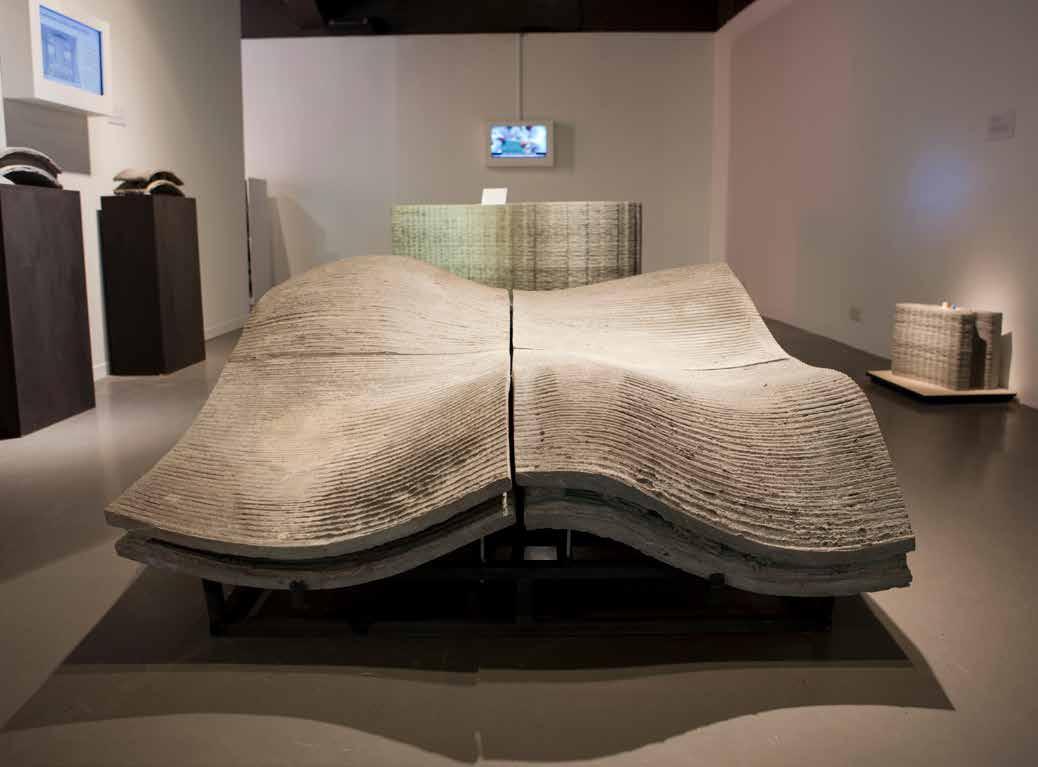
2 minute read
PRE-CONFERENCE PROGRAM
from 3rd RILEM International Conference on Concrete and Digital Fabrication Program 25th – 29th June 202
PHD Workshop
Saturday 25th June
Located in Room RT0.37 in the Sir Frank Gibb Building
08:45 - 09:00 Registration
09:00 - 09:50 Rheology and 3D Concrete Printing – all you need to know
Nicolas Rousell, Senior Researcher at Laboratoire Navier and President of RILEM
• Yield stress and viscosity of cement-based materials fresh properties • Thixotropy and aging of cement-based materials fresh properties • Measurement of cement-based materials fresh properties
10:00 - 10:50 Structural failure during 3D printing – modelling for success
Rob Wolfs, Assistant Professor in Structural Engineering and Design, Department of the Built Environment, Eindhoven University of Technology
• Failure during 3D printing: why and how • Early age mechanical properties and how to characterize them • Mechanistic and numerical approaches to predict & prevent failure
11:00 - 11:50 How to make your materials behave using admixtures?
Robert J. Flatt, Professor of Physical Chemistry of Building Materials, ETH Zürich Timothy Wangler, Senior Researcher in the Chair of Physical Chemistry of Building Materials, ETH Zurich
• Essential admixtures needed for digital fabrication of cementitious materials • Working mechanisms and potential unforeseen consequences in usage of these admixtures • Processing routes for successful implementation
12:00 - 13:00 LUNCH 13:00 - 16:30 Training Option 1: Title: Programming robots the easy way – getting started with toolpath generation for 3D printing using the HAL Robotics Framework for Grasshopper
Sebastian Andraos, CEO and Co-founder of HAL Robotics
Description: • Introduction to a set of tools which can greatly simplify the programming of complex 3D printing toolpaths and allow you to concentrate on the process and part designs, rather than getting a piece of equipment to move. • Learn how to model your robot cell with your robot, your tools and control systems • Learn how to generate complex toolpaths based on geometry, validate, and simulate them • Learn how to export and upload those programs to real machines
13:00 - 16:30 Training option 2 – How good is your print? – An introduction to metrology for 3DCP
Peter Kinnell, Reader in Metrology, Wolfson School, Loughborough University
Description: • How to setup and use 3D motion caption systems to monitor the 3DCP printing process. • How to build and use fringe projection 3D scanner to measure large concrete parts. • How to analyse point cloud data, to extract useful measurements from 3D scans.





